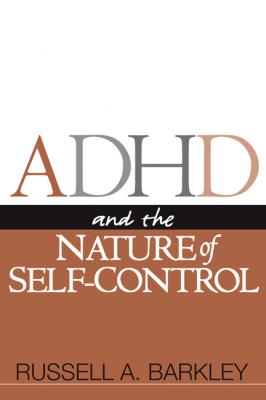Used. Very Good Condition.
Summary
This far-reaching work from renowned scientist-practitioner Russell A. Barkley provides a radical shift of perspective on ADHD. The volume synthesizes neuropsychological research and theory on the executive functions, illuminating how normally functioning individuals are able to bring behavior under the control of time and orient their actions toward the future. Meticulously applying this model to an examination of the cognitive and social impairments manifested in ADHD, Barkley offers compelling new directions for thinking about and treating the disorder. The paperback edition features a new afterword in which the author reflects on current research directions and the continuing evolution of his approach.
Reviews
"Not only does this book provide a comprehensive history of ADHD, but it also offers new perspectives on the contributions of behavioral inhibition and executive functions to the syndrome. Numerous behavioral indicators that were not accounted for by prior theories are addressed by Barkley's new paradigm. This book is essential reading [and] furnishes valuable information for psychologists, psychiatrists, and educators."
-Contemporary Psychology
"Many of the ideas presented...are highly sophisticated. Yet the book is extremely reader friendly....All terms are clearly explained, and the reader is carefully walked through all logical leaps. Overall, the book presents what could be considered the first comprehensive theory of attention-deficit hyperactivity disorder....It leads to numerous testable hypotheses, and as such, it is likely to stimulate thinking, empirical research and controversy well into the 21st century."
-Psychiatric Services
"This is an extremely important text, full of information and ideas....Will generate much discussion and research....The clinical implications are also very provocative, especially for clinicians using cognitive or meta-cognitive techniques....This is a seminal contribution and worthwhile reading for any serious student of ADHD."
-Journal of Cognitive Psychotherapy
"Eloquently offers a fundamentally different way of understanding the many lifelong psychosocial struggles that persons with ADHD have to cope with....The author's model is of enormous value in clinical efforts to find answers to some frequently asked questions....This book will undoubtedly be remembered as one that changed the way clinicians responded to the requests of parents, siblings, and spouses wishing to find a way to nurture rather than to react with anger, which is frequently elicited by their loved ones with ADHD."
-Bulletin of the Menninger Clinic
Contents
- The Nature of Attention-Deficit/Hyperactivity Disorder
- Biological Etiologies Associated with ADHD
- Defining Behavioral Inhibition, Self-Control, and Executive Function
- Behavioral Inhibition and ADHD
- Neuropsychological Views of the Executive Functions: The Origins of a Hybrid Model
- Additional Evidence Supporting the Existence of the Executive Functions
- Constructing the Hybrid Model of Executive Functions
- Developmental Considerations: Self-Control as an Instinct
- Extending the Hybrid Model of Executive Functions to ADHD
- Evidence Supporting Executive Function Deficits in ADHD
- Understanding ADHD and Self-Control: Social and Clinical Implications
Afterword (2005)
News From ADD WareHouse and MyADHD.com
Learn about new books, treatment and assessment tools, ADHD research, articles, Q & A and more.


